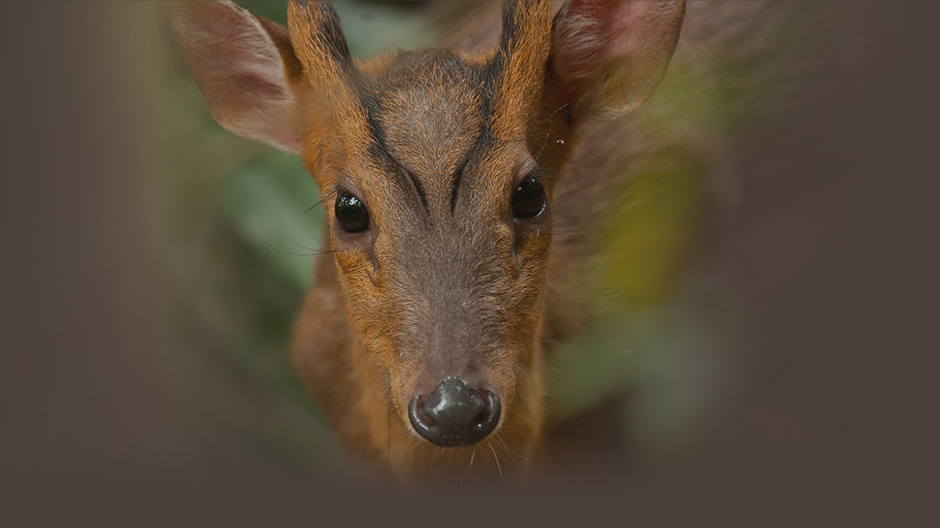跨足實體和電商市場的非法瀕危物種貿易,是規模龐大不容忽視的問題。今年第17屆華盛頓公約會議將從24日起在約翰尼斯堡舉行為期12天的密集談判,總計182個國家加上歐盟出席,訂定出管理全世界野生物的重要依據。
Illegal trade in endangered species, including internet commerce, is enormous – by any estimate. Far-reaching decisions on managing the world’s wildlife are about to be made here in Johannesburg, where 182 countries plus the European Union will gather Saturday at the Sandton Convention Centre for 12 days of intense negotiations.
Johannesburg will host the triennial conference of countries are Parties to the world’s most important wildlife treaty – the Convention on International Trade in Endangered Species of Fauna and Flora, usually called CITES (pronounced sigh-tees).
The 17th Conference of the Parties to CITES, CoP17, is the first hosted by an African country since 2000. About 2,500 participants and 250 accredited media will attend.
Elephants, lions, tigers and rhinos, and in the oceans sharks and rays, are well-known endangered wildlife species, and conservation measures for them all will be considered by CITES delegates. But, CITES is not just about well-known animals.
The CITES treaty makes rules for cross-border trade in over 35,000 wild species of plants and animals. CoP17 delegates will accept or reject 62 species specific proposals submitted by 64 countries.
Dr. Teresa Telecky, director, Wildlife Department, Humane Society International, is positive about many of the CoP17 species proposals.
“I have been doing this for 26 years and this is a meeting with a great many uplisting proposals,” she explained, describing “uplisting” proposals that make trade in endangered species more difficult.
Dr. Telecky is pleased that numerous proposals affect “species that are unfamiliar to many,” such as pangolins, nautilus, pygmy chameleons, geckos, turtles, and 15 species of rosewood.
Trade in African Elephant Ivory Again Proposed
Three proposals concerning the African elephant, Loxodonta africana, are already generating hot debate, as an existing global embargo on ivory sales is due to end in 2017.
The first two proposals involve Namibia and Zimbabwe. Led by Rowan Martin, Zimbabwe’s representative to CITES, these countries want CoP17 delegates to lift CITES trade controls on African elephant ivory.
Numerous countries oppose this approach. Both the CITES Secretariat and the nonprofit wildlife monitoring network TRAFFIC and have recommended that the Parties reject all three proposals.
The third African elephant proposal is brought by: Benin, Burkina Faso, Central African Republic, Chad, Ethiopia, Kenya, Liberia, Mali, Niger, Nigeria, Senegal, Sri Lanka and Uganda. This proposal bans all African elephant trade. However, CITES procedures give Parties the ability to “opt out” of the changes proposed.
The result, TRAFFIC believes, “would be counterproductive for elephant conservation and could place African elephants at greater risk.”
While many countries oppose opening the elephant ivory trade, the European Union is still on the fence, a position that is causing alarm in the 29 African countries of the African Elephant Coalition.
In a position paper, the EU said, “Given the continuous high levels of elephant poaching and illegal ivory trade, it is premature to agree on a resumption of trade. The efforts by Namibia for wildlife conservation and to combat poaching and illegal trade should nonetheless be recognised and further encouraged.”
“The situation is alarming in most of our countries,” says Azizou El Hadj Issa, former minister of agriculture in Benin and president of the Council of Elders of the African Elephant Coalition.
“Elephants are slaughtered every day, rangers are being killed and the trade is fueling terrorism which destabilizes the continent and has huge repercussions for EU security,” Issa warned at a meeting with EU officials in July. “We need the EU to support us and become part of the solution to this crisis. We, the Africans, have that solution and we call on the EU and its member States to throw their support behind our proposals.”
Pangolins Protected But Disappearing
Despite legal protections, pangolins (say pang-guh-linz) are the most illegally traded mammals in the world. Native to Asia and Africa, these mammals hunt at night for ants and roll up into a ball when threatened.
Gaining popular recognition as the basis for the Pokémon Sandslash, all eight species of pangolins are threatened with extinction.
The four Asian species are listed as Critically Endangered or Endangered by the International Union for Conservation of Nature, IUCN, on its Red List of Threatened Species.
Pangolins are vanishing due illegal trade and the destruction of their habitat. People illegally hunt pangolins for their meat, their scales, used in traditional medicine, and their skins which become luxury fashion accessories.
The Endangered Indian pangolin, Manis crassicaudata, for instance, can adapt to modified habitats, but a large proportion of its range has high human population density. The pangolins are experiencing rapid loss and deterioration of habitat, according to the Zoological Society of India, which reported to the IUCN Red List in 2002 that an increase in the agrarian economy, improved irrigation and the use of pesticides are additional threats to this species.
Even though CITES already regulates all species of pangolin, the IUCN Pangolin Specialist Group estimates that pangolins are “the most illegally traded wild animals on the planet.”
All eight pangolin species are listed under Appendix II of CITES, so trade is regulated and monitored and permits are required from exporting countries. To issue a permit, the exporting country must determine that this activity will have no detriment to the wild population.
As an added protection for the four Asian species, CITES imposed a zero export quota. Still, scientific and research uses can still be authorized by permit. For the four African species, commercial trade is not prohibited, but permits are still required.
Pangolins also are protected in their range states by domestic wildlife laws.
The delegates at CoP17 will consider five pangolin proposals, submitted by 19 countries, including the United States. If accepted, the proposals would ban all international trade in pangolins or their parts.
Again, the CITES Secretariat and TRAFFIC are in agreement — accept all five proposals.
※ 全文及圖片詳見:ENS
 網站捷徑
網站捷徑



